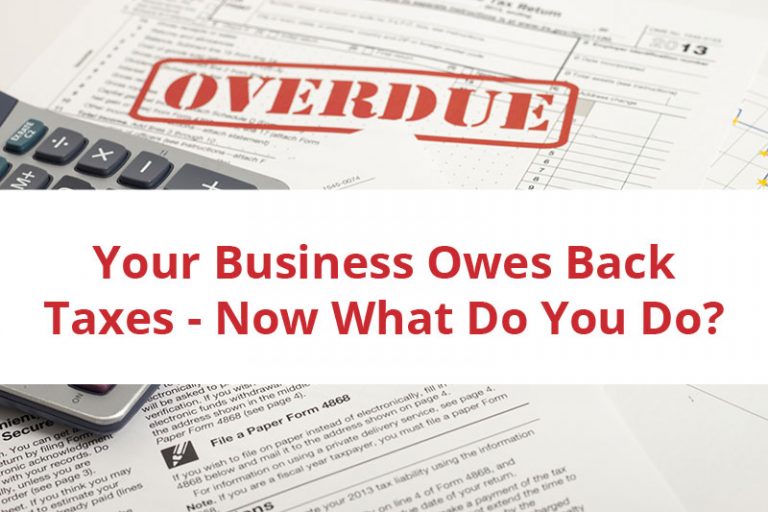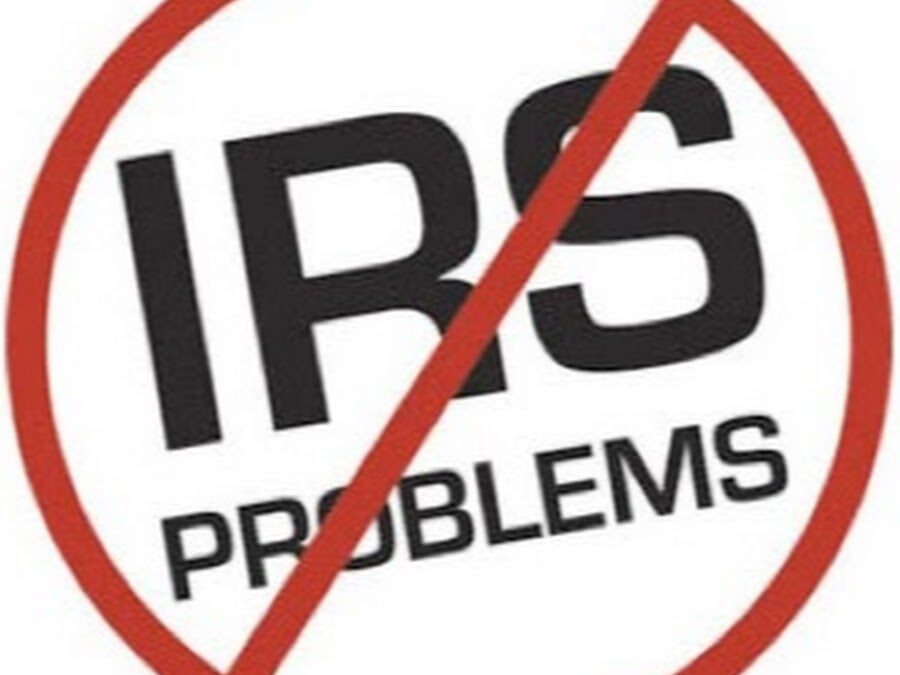
by Paulette Marshall | Oct 9, 2023 | Tax Preparation, Tax Resolution
Entrepreneurship can be hard. Some years are good, others are not so great. But every year, like clockwork, the IRS comes calling and asks you for what’s theirs.
Small businesses often face unexpected financial challenges. Among the scariest of these challenges is unpaid taxes. Although the IRS may appear patient initially, resting on one’s laurels can be a perilous decision. Once the IRS gears into action, they are known for their relentless pursuit and uncompromising measures. They are the most brutal collection agency on the planet.
So, if you find your business in this situation, it’s paramount to be proactive. Here’s a comprehensive guide to help you correct the course.
Note: If the IRS is claiming you owe $10,000 or more, contact our firm immediately for a consultation and learn about your tax debt relief options www.actiontaxrelief.com.
1. Don’t Ignore The IRS
The first step is paying attention and taking action. You might not agree with the IRS but you can’t leave them in your pile of unread mail, or worse unopened mail. Recognize the gravity of unpaid taxes and understand that it’s a liability that won’t just dissipate. The sooner you confront the reality, the better you can strategize a solution.
2. Open Lines of Communication:
Ignoring IRS notices can exacerbate your situation. Instead, get proper representation from a qualified tax relief firm and have them engage with the IRS on your behalf. Firms like ours have dealt with the IRS many times before. Timely responses showcase your commitment to resolve the issue and the right firm will guide you through every step of the process.
Owing 941 payroll taxes is double jeopardy. Not only can the IRS levy and lien your business income and assets, they can pierce the corporate veil, without a court order, and go against you personally.
3. Understand Penalties and Interest:
Unpaid taxes don’t just stay static; they accumulate penalties and interest over time. With current IRS interest rates hovering at 8%, compounded daily, Each day you procrastinate is costing you big time. Familiarize yourself with the accruing amounts to grasp the full scope of your liability. The more time you let pass, the higher the penalties and interest will be.
4. Consider Installment Agreements:
The IRS often allows businesses to pay their tax liabilities over a period in monthly installments. If you can demonstrate genuine inability to pay the lump sum, they might consider an installment agreement. This can help in managing cash flows and ensuring business operations aren’t severely disrupted.
5. Offer in Compromise (OIC):
In specific circumstances, the IRS might accept a reduced amount to settle the entire debt. Known as an Offer in Compromise, this option is contingent on demonstrating you cannot pay the full tax liability over the remaining 10-year collection statute. The right tax resolution firm will help you explore this option if you’re qualified for the program.
6. Temporarily Delay the Collection:
If your business is in a dire financial situation, the IRS might temporarily delay their collection efforts. While this offers a short-term reprieve, it’s essential to use this time wisely and strategize a long-term solution.
7. Seek Professional Assistance:
Engaging with a tax resolution firm can be invaluable. They can guide you through the intricacies of tax laws, help keep your business open, negotiate with the IRS on your behalf, and help formulate a plan tailored to your unique circumstances.
8. Preventative Measures:
While addressing current unpaid taxes is vital, implementing systems to avoid future discrepancies is equally crucial. Regularly review your finances, maintain clear records, and stay updated with tax regulations. Make quarterly estimated payments and be proactive throughout that year by creating a concrete plan with your qualified tax resolution professional.
Unpaid taxes are a looming storm cloud for any small business owner. While the IRS might seem lenient initially, their eventual intervention can be formidable. By acknowledging the debt, communicating promptly, understanding your options, and seeking professional guidance, you can navigate these challenges effectively. Remember, in the realm of taxes, proactive action is always better than reactive measures.
If you’re facing IRS problems and owe $10,000 or more in back taxes or are being audited, reach out to our tax resolution firm, and we’ll schedule a free and confidential consultation to explain your options thoroughly and help you permanently resolve your tax problem www.actiontaxrelief.com.

by Paulette Marshall | Oct 2, 2023 | Tax Preparation, Tax Resolution
Tax filing season is a source of stress for just about everyone. That extra stress and uncertainty ramps up and up, and you never know if you must write a check to the IRS.
You also do not know which threats will loom, and that lack of knowledge could put you at real risk. Tax scams have increased in recent years, but they tend to break down into four major categories. One of these tax scams can put you in real danger and can leave you on the hook with the IRS, owing thousands of dollars if you’re unlucky. Here are four tax scam dangers you should be aware of.
Important Note: If you’ve fallen victim to a tax scam and the IRS is claiming you owe $10,000 or more, contact our firm today for a consultation [insert your contact page link].
#1. IRS Impersonators
When tax season begins, fake IRS agents come out of the woodwork. Those phony IRS impersonators may flood your email inbox with threatening messages and text your smartphone with incorrect information.
Those IRS impersonators may call you on your landline or smartphone, ratcheting up the threats and the danger. From threatening arrest if back taxes are not paid to using hard sell tactics to get you to pay up, those impersonators can take a big bite out of your wallet.
If you want to stay safe, know that the real IRS never initiates communication via email, text, or phone calls. If there is a problem with your taxes, the IRS will send a good old-fashioned letter, so watch your mailbox and ignore everything else.
#2. Phishing Scams
Phishing scams are always going on, but they really ramp up as tax season gets underway. Those cybercriminals know that tax season is a stressful time for their victims, and that they may put their guard down if confronted with a sufficiently scary subject line.
It’s always a good idea to treat unsolicited emails with a healthy dose of skepticism, but that’s even more true when tax season is on the horizon. You should always investigate such messages thoroughly — and never click on embedded links that could harbor malware and other threats.
#3. Fraudulent Filing
If you do not file your taxes quickly, cybercriminals may do it for you. Fraudulent filing has increased, upping the risk that you could be the next victim.
These fraudulent filers use Social Security numbers and other personal information they buy on the dark web. Armed with that information, they file fraudulent tax returns, claiming refunds they are not entitled to and funneling them to their own accounts instead of yours. The best way to guard against this risk is to file your tax return as quickly as possible and protect your personal information online.
#4. Shady Tax Preparers
Sometimes the people you pay to prepare your taxes are the source of the scam. Shady unlicensed tax preparers mine information from their clients, keeping lists of Social Security numbers and other key information to perpetrate future crimes.
If you trust your taxes to a preparer who is less than honest, identity theft may not be your only problem. Those shady tax preparers may also commit fraud, making up deductions, claiming phony dependents, and ultimately getting you a huge tax refund you do not really qualify for. When the IRS catches the mistake, the tax preparer will be long gone, leaving you on the hook for penalties, interests, and the kind of stress only an IRS audit can provide.
Filing taxes is stressful enough, but falling for a scam could make your interactions with the IRS even worse. Cybercriminals see tax filing season as a golden opportunity, one they are ready, willing, and eager to exploit for their nefarious purposes.
If you want to protect yourself and your money, you must take a proactive approach to cybersecurity. Knowing the dangers is a vital first step, so keep a close watch on your information at all times.
If you’re facing tax troubles, reach out to our tax resolution firm, and we’ll schedule a free and confidential consultation to explain your options thoroughly and help you permanently resolve your tax problem www.actiontaxrelief.com.

by Paulette Marshall | Aug 28, 2023 | Tax Preparation, Tax Resolution
Neglecting to pay your taxes can lead to serious consequences, and one of the most severe repercussions is the federal government filing a legal claim against all your current and future property through a federal tax lien.
In this article, we’ll break down what a federal tax lien is and provide guidance on what steps you should take if you receive a certified letter indicating that you have one.
Please note that it’s always advisable to seek the assistance of a specialized Tax Resolution Professional who can negotiate with the IRS on your behalf. If you’d like to schedule a free and confidential tax relief consultation, please contact us through our contact page www.actiontaxrelief.com.
What is a Federal Tax Lien?
A federal tax lien is a document filed with a county government (usually where you reside or conduct business) to notify the general public that you have an outstanding federal tax debt.
How Does It Affect Your Assets?
A tax lien attaches to all your assets, including property, securities, and vehicles. It also extends to any assets you acquire in the future during the duration of the lien.
If you sell any property while a federal tax lien is in place, the IRS will be paid before you receive your share.
How Does It Affect Your Credit?
Once the IRS files a Notice of Federal Tax Lien, it becomes public record. Credit reporting bureaus often pick up this information, which means that the federal tax lien will eventually appear on your credit report and could hinder your ability to obtain credit.
How Does It Affect Your Business?
A tax lien attaches to all your business property and rights to business property, including accounts receivable. This can significantly impact your ability to run your business normally and put you further behind.
What About Bankruptcy?
Filing for bankruptcy does not automatically eliminate your tax debt or the Notice of Federal Tax Lien. These obligations may persist even after the bankruptcy process.
Is a Lien the Same as a Levy?
The terms “lien” and “levy” are often used interchangeably, but they have distinct differences. A federal tax lien represents the government’s legal claim or interest in all your property. However, the IRS does not sell off or forcefully confiscate your assets. Nonetheless, having the IRS place a chain on everything you own can certainly make your life significantly more challenging.
A levy, on the other hand, refers to the enforcement of the lien through the collection of taxes. This can include actions such as seizing funds directly from your bank account or garnishing up to 75% of your net paycheck.
What Should You Do Next?
According to the IRS website, “Paying your tax debt in full is the best way to get rid of a federal tax lien. The IRS releases your lien within 30 days after you have paid your tax debt.” However, for most people, writing a check for the full amount is not feasible. This is where a tax resolution specialist can be of assistance.
Contrary to the IRS’s advice, your initial step should be to contact a qualified tax resolution professional, such as ourselves. Dealing with the IRS on your own is like going to court without a lawyer—it’s possible, but your chances of achieving a favorable outcome are slim.
A qualified tax resolution expert can create a resolution plan, immediately communicate with the IRS on your behalf, and initiate negotiations to alleviate your tax problem.
Feel free to reach out to our firm, and we’ll be happy to schedule a confidential consultation without any obligation. During this session, we’ll explain the options available to you for permanently resolving your tax problem at www.actiontaxrelief.com.

by Paulette Marshall | Aug 22, 2023 | Tax Preparation, Tax Resolution
Dealing with tax debt can be incredibly intimidating. It’s natural to feel overwhelmed and powerless in such a situation, but it’s important not to let fear and helplessness paralyze you.
Every day you delay taking action, interest and penalties continue to accumulate, potentially causing your liabilities to skyrocket and wreak havoc on your financial stability. In this article, we’ll discuss one of the many available options for tax relief called an “Offer in Compromise.” But before we delve into that, if you’re facing a tax problem, get in touch with our firm to schedule a consultation at www.actiontaxrelief.com.
What Are Your Options?
Even if you believe it’s impossible to repay what you owe, it’s crucial to explore all available repayment options. While the IRS may be a formidable collection agency, they can be surprisingly reasonable when it comes to repaying back taxes and settling long-standing debts.
If you owe back taxes to the IRS or have unfiled tax returns from previous years, you may qualify for programs that make it easier and faster to pay what you owe. One such program is the offer in compromise, which allows eligible individuals to settle their IRS debt for significantly less than the full amount. However, qualifying for this program can be complicated, so the best way to determine your eligibility is by contacting our firm today [insert your contact page link].
An offer in compromise is a well-known but often misunderstood part of the tax code, and navigating its complexities can be challenging. Not all taxpayers will qualify for the offer in the compromise program, and even those who do may struggle with the intricacies of dealing with the IRS.
This is why it’s crucial to work with a tax resolution expert when you have back taxes. Without an expert on your side, the IRS may reject your offer for a compromise, and the amount you owe could keep increasing due to additional penalties and interest.
If you’ve received a tax due notification from the IRS, you can’t afford to wait. When the tax agency wants their money, they want it immediately, and without an offer in compromise, your options may become severely limited. The longer you wait, the more challenging your situation may become. However, hiring the right tax professional—one who specializes in dealing with the IRS—can turn things around.
An experienced tax resolution specialist possesses comprehensive knowledge of all IRS programs, including the offer in compromise option. Even if you don’t qualify for an offer in compromise, a tax relief expert can help you explore alternative options, allowing you to settle your debt while still having enough money to sustain your life.
Few things in life are as daunting as owing money to the IRS. When that notice arrives in your mailbox, it’s easy to panic and do nothing. However, this situation demands prompt action. The faster you act, the easier it will be to find a qualified professional who genuinely cares about your best interests. Once you’ve connected with a reputable tax resolution firm, you can work towards paying off your debt, achieving a fresh start with the IRS, and finally putting this unfortunate chapter of your financial life to rest.
If you’re facing tax troubles, reach out to our tax resolution firm, and we’ll schedule a free and confidential consultation to explain your options thoroughly and help you permanently resolve your tax problem at www.actiontaxrelief.com.

by Paulette Marshall | Aug 1, 2023 | Tax Preparation, Tax Resolution
Filing your tax return accurately is crucial to avoid unnecessary tax troubles. However, it’s not uncommon to discover errors or overlooked information after you’ve already filed. Fortunately, the Internal Revenue Service (IRS) allows taxpayers to amend their returns using Form 1040X.
In this blog post, we’ll explore how amended tax returns work, the importance of seeking professional assistance, and how our firm can help you navigate the complex world of tax resolution.
Uncovering Missed Income and Deductions:
Sometimes, taxpayers file their returns only to realize later that they omitted certain sources of income, such as earnings from temporary jobs or side gigs. This oversight becomes apparent when they receive a 1099 or a late W2 form indicating the income earned. Similarly, others may discover they were entitled to additional deductions or exemptions. For such cases, amending your tax return is the appropriate course of action.
Understanding the Timeframe:
The IRS allows individual income tax returns to be amended up to three years after the original return’s due date. Form 1040X is the official document used for amending returns. While you can file an amended return on your own, it’s strongly recommended to consult a tax resolution professional. They possess the expertise to handle multiple years of unfiled tax returns, potentially negotiate reduced payments, and save you from unnecessary headaches.
The Amended Tax Return Process:
Not all errors require filing an amended return. The IRS automatically corrects simple math mistakes. However, when there’s a need to change filing status, income, allowable deductions, or credits, filing an amended return is essential. To initiate this process, you’ll need to complete Form 1040X, which cannot be electronically filed. This is where the expertise of a tax professional becomes invaluable, as they can guide you through the intricacies of the form.
Proper Documentation and Explanation:
When completing Form 1040X, each amended tax year requires its own separate form, each of which must be mailed in its own envelope. The form provides space to explain the changes made, and it’s important to clearly state the line numbers and reasons for the amendments. While you don’t need to attach a copy of the original return, any additional IRS forms or supporting documents must be included to substantiate the changes.

by Renee Lawson | Jul 17, 2023 | Tax Preparation, Tax Resolution
Proper tax planning is a crucial aspect of financial management that should be addressed throughout the year. Waiting until April to assess your tax liability is a risky move. To ensure you keep more money in your pocket, it’s essential to be aware of factors that can unexpectedly raise your taxes. Today we will explore five key factors that could potentially increase your tax owed at the end of the year. By being proactive and considering these factors, you can better plan your finances and mitigate tax surprises.
Factor #1 – Cashing in Your Retirement Plan:
Early withdrawal from your retirement plan, such as a 401(k), can lead to significant tax penalties. If you opt to receive the proceeds in cash instead of rolling them over into an Individual Retirement Account (IRA), you will be required to pay taxes on the withdrawn amount. Additionally, a 10 percent penalty may apply. By avoiding these pitfalls, you can safeguard a substantial portion of your hard-earned retirement savings.
Factor #2 – Working as a Freelancer:
While freelancing offers independence and flexibility, it can also introduce complex tax implications. Freelancers and self-employed individuals are subject to the self-employment tax, which includes both the employer and employee shares of Medicare and Social Security taxes. Failing to account for this tax burden and set aside funds accordingly can lead to unpleasant surprises come tax season.
Factor #3 – Failing to Take Your Required Minimum Distribution (RMD):
Retirement accounts, such as IRAs and workplace plans, require individuals to begin withdrawing minimum distributions once they turn 70. Failing to meet this requirement can result in substantial tax penalties. It is crucial to stay informed about RMD rules and ensure compliance to avoid unnecessary financial setbacks.
Factor #4 – Skipping Your IRA Contribution:
Opting to skip your annual IRA contribution can have unforeseen consequences for your tax bill. Before deciding to forgo contributing to your IRA, it is prudent to evaluate the potential impact on your overall tax liability. Running the numbers and seeking professional advice can help you make an informed decision.
Factor #5 – Paying Off Your Mortgage:
While paying off your mortgage may provide a sense of financial freedom, it can affect your tax situation. Mortgage interest is typically tax-deductible if you itemize your deductions. Losing this deduction could potentially increase your tax liability. While this shouldn’t be the sole reason to keep a mortgage, it’s an important consideration to keep in mind.
Seek Professional Assistance for Tax Debt Cases:
If you find yourself owing back taxes, it is crucial to seek professional assistance to navigate the complexities of tax debt resolution. Our firm specializes in helping individuals negotiate with the IRS and we can potentially settle tax debts for a fraction of the amount owed. Contact us
today for a confidential consultation, and let our experienced tax resolution specialists guide you through the IRS maze, providing you with peace of mind.
Year-round tax planning is essential to minimize surprises and optimize your financial well-being. By being aware of factors that can unexpectedly raise your taxes, such as early retirement plan withdrawals, self-employment tax obligations, missed required minimum distributions, skipped IRA contributions, and the impact of mortgage payoff, you can take proactive steps to manage your tax liability effectively.
Remember, hiring a tax resolution specialist for IRS problems is crucial for protecting your hard-earned income and assets. Let us help you take back control of your financial lfe by reaching out to our firm today at www.actiontaxrelief.com.






